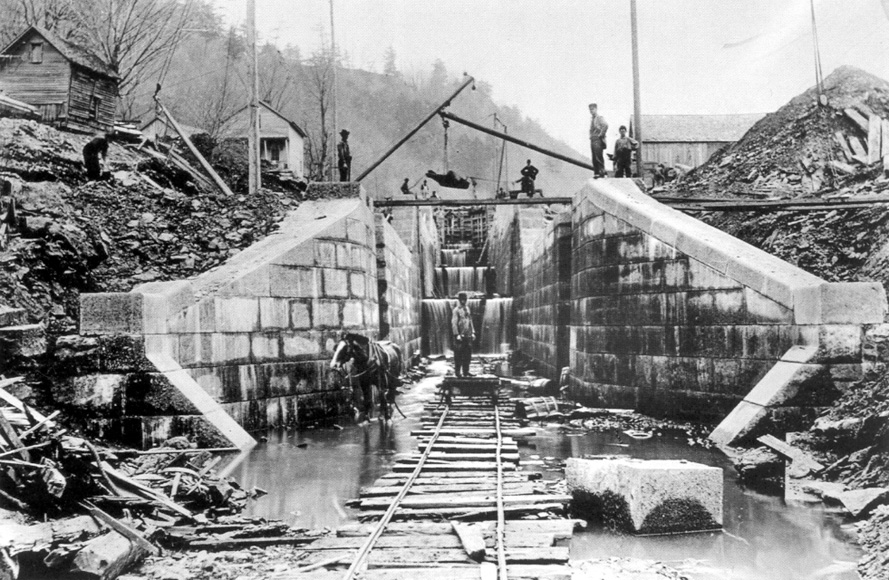Cornelius Vanderbilt, a name synonymous with the rise of the American transportation industry, revolutionized how goods and people moved across the nation in the 19th century. His innovative strategies and business acumen positioned him as one of the wealthiest individuals of his time, earning him the title "The Commodore." Vanderbilt's legacy continues to influence modern transportation systems, as the foundations laid by his ventures still resonate in today's economy.
In this article, we will delve into the life and achievements of Cornelius Vanderbilt, exploring his contributions to the transportation industry and how he transformed railroads and shipping. Through detailed analysis and insights, we aim to provide a comprehensive understanding of Vanderbilt's impact and the relevance of his work in contemporary society.
From humble beginnings to becoming a titan of industry, Vanderbilt's journey is not only a testament to his entrepreneurial spirit but also an inspiring narrative of ambition and determination. Join us as we navigate through the life of one of America's most influential figures in transportation.
Table of Contents
- Biography of Cornelius Vanderbilt
- Early Life and Career
- Vanderbilt in the Shipping Industry
- Expansion into Railroads
- Business Strategies and Innovations
- Legacy and Impact on Modern Transportation
- Statistics on Vanderbilt's Enterprises
- Conclusion
Biography of Cornelius Vanderbilt
Cornelius Vanderbilt was born on May 27, 1794, on Staten Island, New York. He came from a modest family; his father was a farmer, and his mother was a homemaker. Vanderbilt's entrepreneurial spirit emerged early, and by the age of 16, he had started his first business venture, operating a small ferry service.
| Personal Data | Details |
|---|---|
| Name | Cornelius Vanderbilt |
| Birth Date | May 27, 1794 |
| Birth Place | Staten Island, New York, USA |
| Death Date | January 4, 1877 |
| Occupation | Businessman, Philanthropist |
| Known For | Transportation Industry, Railroads, Shipping |
Early Life and Career
Vanderbilt's early forays into business laid the foundation for his future success. After starting his ferry business, he quickly expanded his operations, providing transportation services between New York and New Jersey. His keen understanding of market demand and service efficiency allowed him to thrive.
By the 1830s, Vanderbilt had amassed considerable wealth and experience, leading him to explore new opportunities in the shipping industry. His entry into the steamboat business marked a significant turning point, as he began to dominate the transportation of goods and passengers across the Hudson River and beyond.
Vanderbilt in the Shipping Industry
Cornelius Vanderbilt's foray into the shipping industry was marked by strategic acquisitions and a relentless pursuit of efficiency. In 1840, he established the "Vanderbilt Line," which became a leading provider of steamboat services.
- Expanded routes to accommodate growing demand.
- Introduced innovations that reduced travel time and costs.
- Built a reputation for reliability and safety.
His success in the shipping industry laid the groundwork for his later ventures into railroads, which would ultimately reshape the American transportation landscape.
Expansion into Railroads
In the 1850s, recognizing the burgeoning potential of railroads, Vanderbilt shifted his focus to this emerging sector. He acquired and consolidated several railroad lines, including the New York Central Railroad, which became the backbone of his transportation empire.
Vanderbilt's vision for an integrated transportation system was revolutionary. He implemented key strategies that included:
- Standardizing gauge widths for better interoperability.
- Investing in infrastructure improvements.
- Creating efficient scheduling systems to minimize delays.
Business Strategies and Innovations
Vanderbilt's success was not merely a product of luck; it was a result of meticulous planning and innovative strategies. He was known for:
- Aggressive competition: Vanderbilt was willing to cut prices to eliminate competition.
- Strategic alliances: He formed partnerships that allowed for resource sharing.
- Investment in technology: He embraced new technologies, such as the steam locomotive.
These strategies ensured that Vanderbilt remained at the forefront of the transportation industry, continually adapting to market changes.
Legacy and Impact on Modern Transportation
Cornelius Vanderbilt's contributions to the transportation industry are immeasurable. His work paved the way for the modern railway system in the United States, and many of the principles he established still guide the industry today. He is often credited with:
- Establishing efficient transportation networks.
- Promoting the importance of competition in lowering prices.
- Encouraging innovation and technological advancement.
His legacy is also reflected in the educational institutions he supported, notably the establishment of Vanderbilt University in 1873, which continues to contribute to various fields of study, including transportation and engineering.
Statistics on Vanderbilt's Enterprises
During his lifetime, Vanderbilt's enterprises were characterized by impressive statistics that showcased his impact:
- At the time of his death, he was worth an estimated $100 million, making him one of the richest men in America.
- He controlled over 4,500 miles of railroad track.
- His shipping lines transported millions of passengers annually.
These figures underscore the magnitude of his contributions to the transportation sector and the lasting influence of his business practices.
Conclusion
Cornelius Vanderbilt's story is one of ambition, innovation, and resilience. His transformative work in the transportation industry reshaped not only the economy of his time but also set a precedent for future generations of entrepreneurs. As we reflect on his legacy, it is clear that his strategies and vision remain relevant in today's fast-paced transportation landscape.
We invite you to share your thoughts on Cornelius Vanderbilt and his contributions to the transportation industry in the comments below. If you found this article informative, consider sharing it with friends or exploring more content on our site.
Thank you for reading, and we look forward to welcoming you back for more insightful articles!
Article Recommendations


:max_bytes(150000):strip_icc()/Cornelius-Vanderbilt-3000-3x2gty-56a4892d3df78cf77282ddd6.jpg)